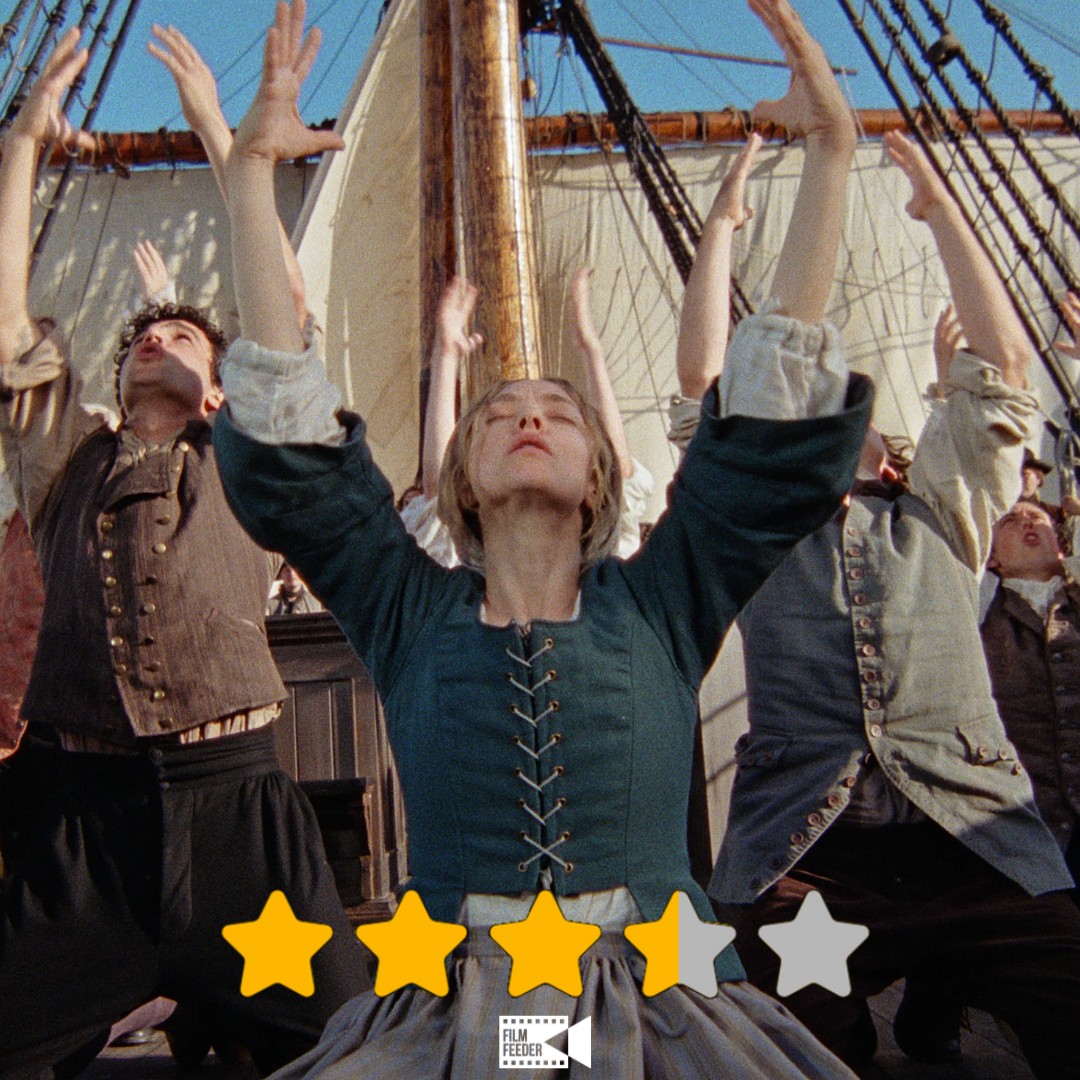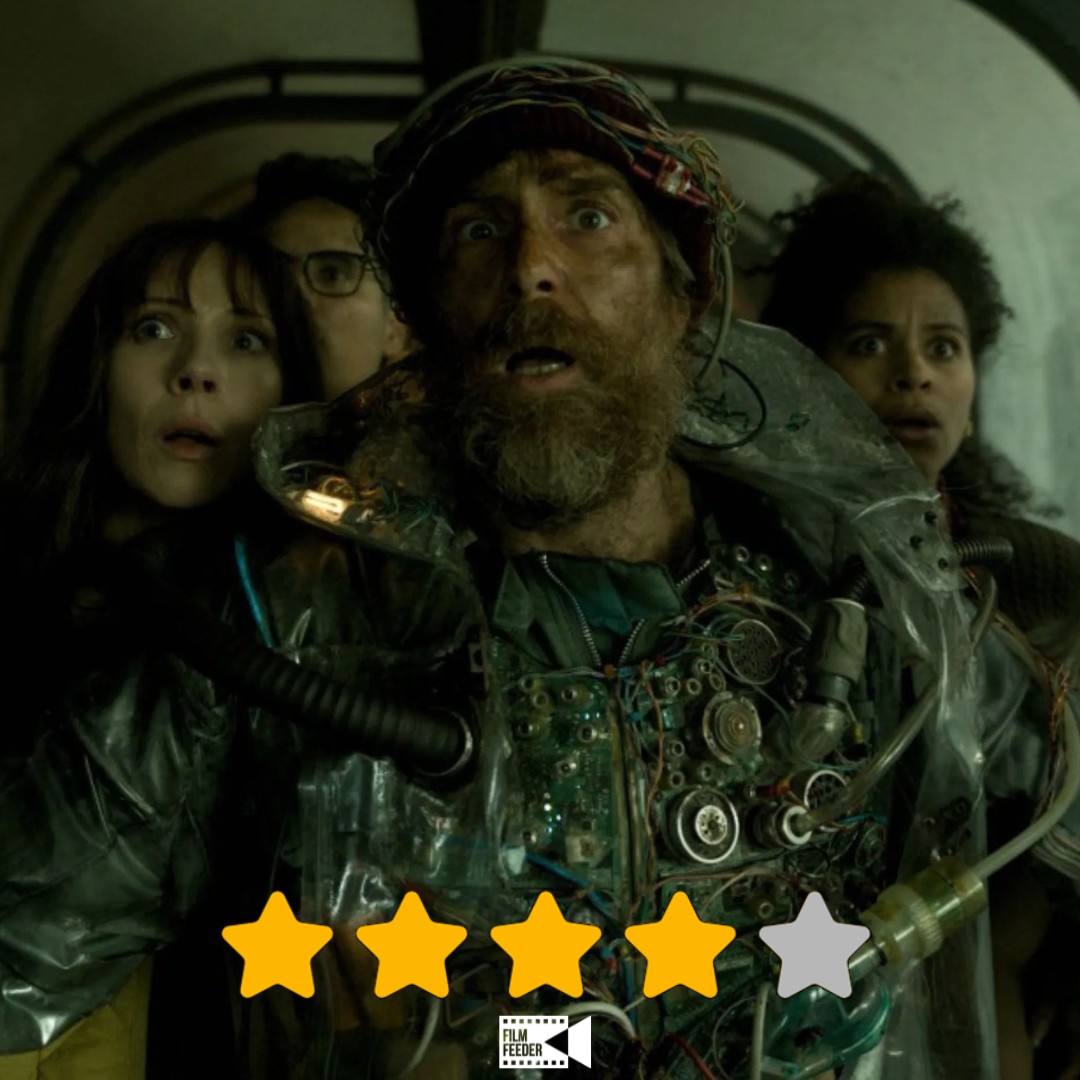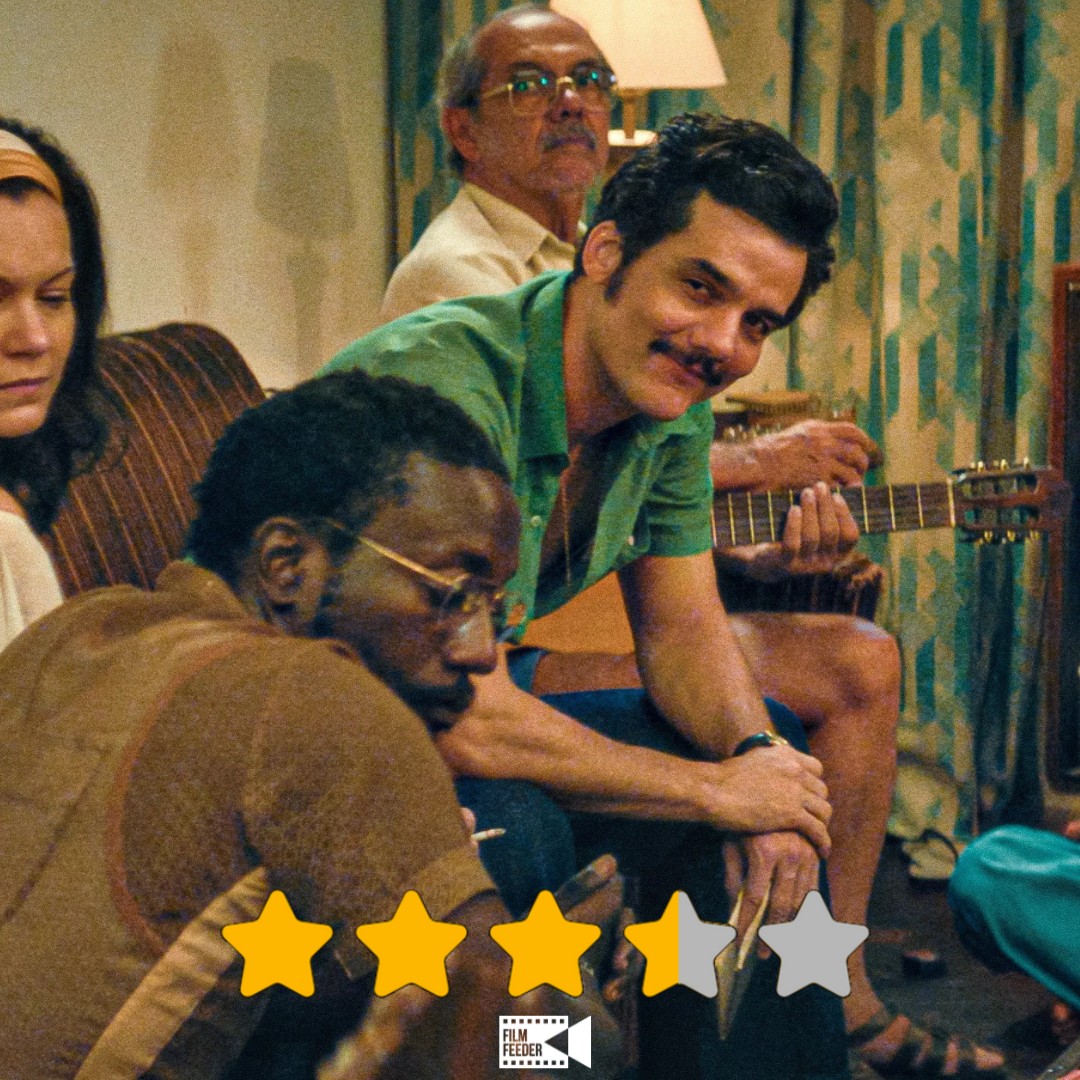
O’Dessa (dir. Geremy Jasper)
Certificate: 16+
Running Time: 108 mins
UK Distributor: Disney+
UK Release Date: 20 March 2025
WHO’S IN O’DESSA?
Sadie Sink, Kelvin Harrison Jr., Murray Bartlett, Regina Hall, Mark Boone Junior, Pokey LaFarge, Marinko Prga, Bree Elrod
WHO’S BEHIND THE CAMERA?
Geremy Jasper (director, writer, composer), Michael Gottwald and Noah Stahl (producers), Jason Binnick (composer), Rina Yang (cinematographer), Jay Rabinowitz and Jane Rizzo (editors)
WHAT’S IT ABOUT?
A farm girl (Sink) ventures out on a dangerous journey in a dystopian world…
WHAT ARE MY THOUGHTS ON O’DESSA?
Throughout filmmaker Geremy Jasper’s O’Dessa, the title character repeatedly refers to herself as a “rambler”, in the sense that she’s simply wandering the land in search of meaning and whatnot. But the irony is, O’Dessa itself is a rambler, and not the wandering kind. The film is a confused and inconsequential mess that keeps going on and on without ever landing on any solid points, except to remind you of far better movies that it is constantly replicating, and of other things you could be doing instead of watching it.
Jasper’s film, an admittedly ambitious follow-up to his rap saga Patti Cake$, is set in a post-apocalyptic future where a psychedelic substance appears to have infected both the oceans and the earth, rendering it a technicolour wasteland. Somewhere in the far reaches of this world is O’Dessa (Sadie Sink), a farm girl who yearns for a life beyond her country life and caring for her ailing mother (Bree Elrod), who recounts – largely for the audience’s sake – of a fabled guitar left behind by her Roy Rogers-costumed father, that’s all part of some prophecy about bringing balance to society or something. I’m sure it’s all important, but I’ll be damned if I, or even you for that matter, can care enough to remember any of it.
Anyway, after her mother dies of plot convenience, O’Dessa retrieves the guitar and sets out on her own, only to soon have it stolen by Mark Boone Junior and his posse of scoundrels, forcing her to venture to the derelict dystopia of Satylite City to get it back. There, she finds the inhabitants enslaved under the authoritarian rule of hypnotic televisual tyrant Plutonovich (Murray Bartlett, in a role clearly written for Russell Brand before… well, all THAT came to light), as well as ruthless and eyebrow-less crime lord Neon Dion (Regina Hall) who carries around electric knuckle bracelets and pimps out attractive young entertainers. It is in one of the latter, sultry nightclub performer Euri Dervish (Kelvin Harrison Jr.), that O’Dessa finds her true love, and with a makeshift guitar made out of a frying pan and some extra strings she attempts to save Euri from his cruel existence and take down Plutonovich’s regime, which may or may not involve going on his warped Britain’s Got Talent-like reality talent show.
Oh, and as if all of that wasn’t enough, it’s also a musical. A rock opera, to be exact, with musician-turned-filmmaker Jasper also co-writing the tunes with Jason Binnick, but think less Repo! The Genetic Opera or even The Rocky Horror Picture Show (both movies with significant camp value that O’Dessa is trying but ultimately failing to replicate) and more one of those batshit musicals from the 70s and 80s that were clearly made by people on the wildest of coke binges, like The Apple or Sgt. Pepper’s Lonely Hearts Club Band. However, even in that department, Jasper’s film is less sure of itself as it struggles to elicit a single memorable melody from a soundtrack of largely forgettable country-rock tunes, with lyrics that frantically spell out their underlying messages in case you weren’t already aware of what they were trying to say.
Not that this stops Jasper from structuring the whole film like it’s one big visual album, where character and plot are all not even secondary to the power of its own empty music, much of it about as processed and corporate as the mindless slop that this totalitarian authority is projecting onto its TVs. Every big musical number is shot and performed like it’s a self-aggrandising music video for the main artist, except they instead got Sadie Sink who’s not a bad singer but clearly a stand-in for whichever pop starlet they were ultimately unable to get, and each time it stops the already-thin plot dead in its tracks as people sing banal lyrics to one another for what feels like a large chunk of time. Such things even occur just after or right in the middle of things that don’t necessarily require a song to be performed, like a love ballad between two characters that comes right after one of them gets their finger chopped off just before sending their attacker to a watery grave.
The songs do little, if anything at all, to disguise how Jasper’s narrative really doesn’t make sense. Not that it’s supposed to in a film like this, but some cohesion would make all the difference, as without it O’Dessa is a film where things just happen without rhyme or reason. Characters will just suddenly know where other people are at any time so they can come in and ruin the moment, while there’s suddenly an eye-less prophet who comes to tell the protagonist that they’re destined for greatness, both following a romance between Sink’s lead and Harrison Jr.’s Euri that begins as randomly as anything else in this movie, especially since neither actor is given enough room to generate believable chemistry beyond their blatant physical attraction to one another.
This also seems like the easiest dictator to overthrow, or at the very least take power away from. After all, this is someone who operates on their own island in the middle of the ocean, but not too far away from the neighbouring city where their brainwashing broadcasts can be switched off at any point by those who could easily get a boat there if they so wish, and once in the presence of this supposed overlord there is little to no major security surrounding them, especially in an environment where one can easily recreate that famous 1984-inspired Apple commercial and send it all to hell. Yet, because there wouldn’t be a movie if someone had figured all this out sooner, it’s allowed to thrive in ways that only the hero can tear down with the mere strum of their guitar.
As I was watching this utter mess of a movie musical, I couldn’t help but think about Emilia Pérez, which regardless of whether you liked that movie or not (I still stand by my positive review for it, even after its many controversies) took a similar gamble with its rock-opera structure and had enough meat on its bones in the narrative department to pay off. O’Dessa, by mere comparison, is so thin on everything else beyond its musical nature – and even then, it’s nothing special – that it retroactively makes Emilia Pérez look far more refined and dignified, not to mention make a lot more sense in the areas that matter most. Make of that what you will, especially if you’re of the many that REALLY didn’t like that movie.
SO, TO SUM UP…
O’Dessa is a rambling mess of a movie musical that has ambition but little substance to back it up, whether it’s in a barrage of largely empty songs or in senseless plot and character developments that leave one confused about how to feel.














0 Comments